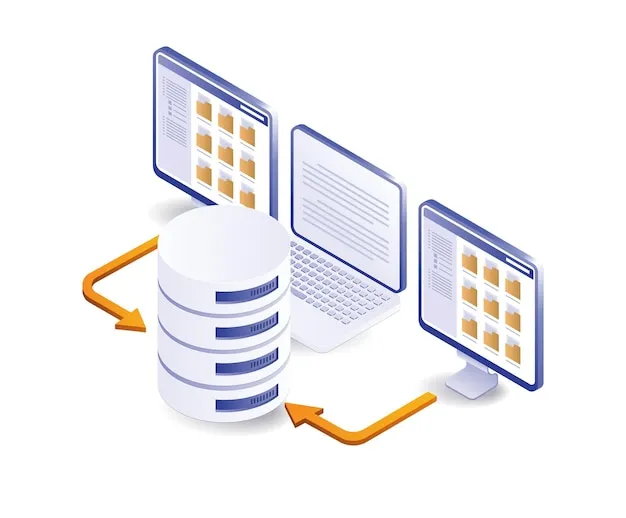The Advantages of using ASP.NET Core with SQL Server

Microsoft created the cutting-edge, open-source ASP.NET Core framework for creating online apps. It is built on top of the.NET Core runtime and is intended to be quick, scalable, and secure. Another relational database management system (RDBMS) created by Microsoft is SQL Server. When combined, ASP.NET Core and SQL Server offer an effective framework for creating web applications with great performance. The following are some of the main benefits of combining ASP.NET Core and SQL Server:
Performance: When paired with SQL Server, ASP.NET Core’s strong performance allows for quick query execution and data retrieval. SQL Server is the best choice for online applications that need speedy data access because it has a powerful storage engine and indexing system that can swiftly process enormous volumes of data.
Security: Strong security features including encryption, authentication, and authorization are well-known for SQL Server. SQL Server offers a secure platform for storing sensitive data when used with ASP.NET Core, ensuring that your web application is safe from data breaches and online threats.
Scalability: When your online application expands, it will be simple to handle massive volumes of data and traffic thanks to the strong scalability of both ASP.NET Core and SQL Server. Enterprise-level applications work best with SQL Server because it can manage hundreds of concurrent users and thousands of transactions per second.
Compatibility: Because both ASP.NET Core and SQL Server were created by Microsoft, they are fully compatible and simple to use. On the Microsoft stack, web application development and deployment are simple due to their seamless interoperability.
Data management: Developers can deal with enormous datasets with ease because to the multitude of tools that SQL Server offers for managing and modifying data. It offers sophisticated features including data compression, backup, and recovery, and supports both organised and unstructured data formats.
Deployment: A variety of platforms, including Windows, Linux, and Docker, can be used to deploy ASP.NET Core and SQL Server. This makes it simple to deploy your web application in any setting, including local servers and cloud computing services like Microsoft Azure.
ASP.NET Core
Microsoft’s ASP.NET Core is a cutting-edge, open-source web application framework that enables programmers to create high-performance, cross-platform web apps. It offers a variety of features and tools for developing scalable, secure, and effective web applications and is built on top of the.NET Core runtime. The MVC (Model-View-Controller), Razor Pages, and Web API development models, among others, are supported by ASP.NET Core, making it a flexible platform for creating a range of web applications. It is also simple to create and deploy web apps on the Microsoft stack thanks to ASP.NET Core’s seamless integration with other Microsoft technologies like Azure and SQL Server.
SQL Server
Microsoft created the relational database management system (RDBMS) known as SQL Server. It is frequently used in enterprise-level applications and offers a reliable and scalable framework for organising and manipulating data. Data compression, backup and recovery, encryption, authentication, and authorization are just a few of the capabilities and tools that SQL Server offers for managing databases in addition to supporting a wide range of data types. Also, it is simple to create and deploy database applications on the Microsoft stack thanks to SQL Server’s seamless integration with other Microsoft technologies like.NET and Azure.
Web applications
Web apps are computer programmes that are accessed via a web browser and are executed on web servers. They are made to give users a dynamic, interactive experience that enables them to complete activities, acquire information, and interact with other people online. A variety of programming languages and frameworks can be used to create web apps, which can then be accessed from a range of hardware, such as desktop, laptop, tablet, and smartphone computers. They are utilised in numerous sectors and functions, including as online banking, social networking, and e-commerce.
Security
Measures done to safeguard anything from injury, damage, or unlawful access are referred to as security. When discussing security in relation to computing, most people mean the safeguarding of digital systems, data, and networks against cyberattacks, data breaches, and other forms of criminal activity. Combining physical, technical, and administrative safeguards including firewalls, encryption, access controls, user authentication, and security policies and procedures can increase security. In order to protect sensitive data and guarantee the integrity and availability of crucial systems and data, security is a crucial factor in many industries, including finance, healthcare, government, and technology.
Scalability
Scalability is the capacity of a system to manage growing amounts of labour or data without noticeably affecting its functioning or performance. The ability of a software application or system to manage an increasing number of users, transactions, or data quantities without experiencing downtime or other performance difficulties is known as scalability in the computing environment. Many methods, such as load balancing, caching, distributed architectures, and horizontal or vertical scaling, can be used to accomplish scalability. In order to ensure that systems and applications can fulfil user needs, scalability is a crucial factor in many industries, especially in fast-growing companies or those with varying workloads.
Compatibility
The term “compatibility” describes how well two or more systems, software applications, or devices may operate together. Compatibility in computing often refers to the capacity of software applications, operating systems, and hardware components to operate together flawlessly, without glitches or conflicts. Different hardware or software configurations, version compatibility problems, and compatibility with other programmes or systems can all have an impact on compatibility. In order to minimise downtime, errors, and other problems that could have a negative impact on productivity and performance, compatibility is crucial for ensuring that software and hardware components can work effectively and efficiently together. users.
Recommended Posts

How to Reduce MDF File Size in SQL Server
April 7, 2025
Bulk Update SQL Server DB from Excel file in ASP.net
November 12, 2024


